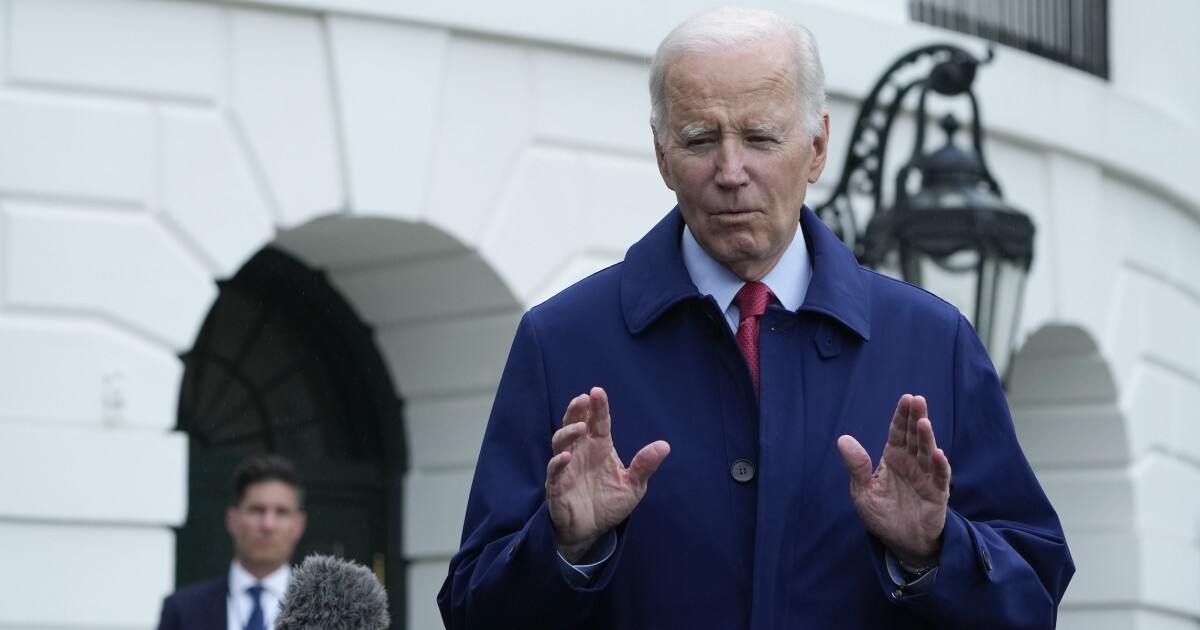

President Joe Biden has reached a debt ceiling deal but still needs to get it across the finish line.
Biden and House Speaker Kevin McCarthy (R-CA) announced an agreement to raise the nation’s debt limit over Memorial Day weekend, with the suspension coming in exchange for several measures designed to reign in spending.
BIDEN NEEDS TO SHELVE TAX INCREASES AND FOCUS ON SPENDING
“We’ve got good news,” Biden said from the White House on Sunday evening. “I spoke with Speaker McCarthy, and we’ve reached a bipartisan agreement that we’re ready to move to the full Congress. And I think it’s a really important step forward. It takes the threat of catastrophic default off the table, protects our hard-earned and historic economic recovery, and the agreement also represents a compromise that means no one got everything they want, but that’s the responsibility of governing.”
It’s true that no one got everything they wanted in the deal. The question is if enough people got enough of what they wanted for it to pass in Congress.
Among its provisions, the Fiscal Responsibility Act lifts the debt ceiling until January 2025, rolls back nondefense spending to fiscal 2022 levels, and caps top-line federal spending at 1% annual growth over the next six years. It also returns nearly $29 billion in unspent COVID-19 relief funds to federal coffers, adds work requirements for some government entitlement programs for people up to age 54, removes $1.9 billion from the IRS that was intended to expand the agency’s workforce, and restarts student loan payments in 60 days.
It’s a far cry from the White House’s original calls for an unconditional debt limit hike that didn’t address spending.
However, that doesn’t mean it will have an easy time in the Republican-controlled House of Representatives, where the deal is being attacked from the right and the left.
“The D.C. Swamp has proposed the largest debt ceiling increase in our nation’s history, adding $4 trillion to the existing $31 trillion national debt,” Rep. Matt Rosendale (R-MT) said in a statement after the deal was reached.
“The Fiscal Irresponsibility Act fails to cut spending and continues to fund the Democrats’ and Biden Administration’s radical agenda,” Rosendale continued. “It is frankly an insult to the American people to support a piece of legislation that continues to put our country’s financial future at risk.”
Rosendale pledged to vote against the compromise bill. But Progressive Caucus Chairwoman Pramila Jayapal (D-WA) also derided it as being “absolutely terrible policy,” though she did not rule out voting in favor.
Democrats, by and large, should back the deal, argues party strategist Brad Bannon.
“It’s about the best deal that Biden could negotiate under the circumstances,” he said. “If you look at it and compare it to the Republican budget that was passed a few weeks ago, this could have been a lot worse for Democrats. It seems to me that Biden gave up some things, but not as much as the Republicans did to get this done.”
The White House has promoted mostly the same message. Various administration officials spoke on a call with reporters Monday afternoon to make the case that Biden got what he was looking for in negotiations. For example, officials said that new entitlement program rules raising the maximum age for work requirements are offset by new exemptions for the homeless, veterans, and former foster children.
With Biden and McCarthy likely needing a mix of voters from both parties to get the bill across the finish line, the president could risk alienating would-be Republican voters by crowing too hard about how great the deal is for his party. But Bannon said the situation is one that will leave both ends of the political spectrum stinging.
“This is one of those bills where Republicans think it’s a Democratic bill and Democrats think it’s a Republican bill,” he said. “But even if it doesn’t pass, it’s to Biden’s advantage if a majority of Democrats support the bill and a majority of Republicans don’t.”
To that end, Bannon argues that the White House should focus much of its energy on selling members of Congress rather than the public.
CLICK HERE TO READ MORE FROM THE WASHINGTON EXAMINER
The Biden administration appears to be doing just that. Press secretary Karine Jean-Pierre told reporters during Monday’s briefing that the White House had reached out to key Democrats who serve on top committees or lead caucuses to talk about the bill.
“We believe this is a reasonable, bipartisan compromise that House congressional members should be proud of,” she said.





